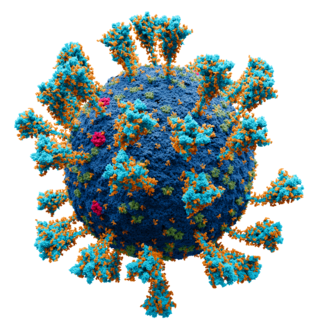Related Research Articles

Quetiapine, sold under the brand name Seroquel among others, is an atypical antipsychotic medication used for the treatment of schizophrenia, bipolar disorder, and major depressive disorder. Despite being widely used as a sleep aid due to its sedating effect, the benefits of such use do not appear to generally outweigh the side effects. It is taken orally.

Oxymorphone is a highly potent opioid analgesic indicated for treatment of severe pain. Pain relief after injection begins after about 5–10 minutes, after oral administration it begins after about 30 minutes, and lasts about 3–4 hours for immediate-release tablets and 12 hours for extended-release tablets. The elimination half-life of oxymorphone is much faster intravenously, and as such, the drug is most commonly used orally. Like oxycodone, which metabolizes to oxymorphone, oxymorphone has a high potential to be abused.

Capecitabine, sold under the brand name Xeloda among others, is a chemotherapy medication used to treat breast cancer, gastric cancer and colorectal cancer. For breast cancer it is often used together with docetaxel. It is taken by mouth.

Carprofen is a non-steroidal anti-inflammatory drug (NSAID) of the propionic acid class that was previously for use in humans and animals, but is now only available to veterinarians for prescribing as a supportive treatment for various conditions in only animals. Carprofen reduces inflammation by inhibition of COX-1 and COX-2; its specificity for COX-2 varies from species to species. Marketed under many brand names worldwide, carprofen provides day-to-day treatment for pain and inflammation from various kinds of joint pain, as well as post-operative pain.

Flupentixol (INN), also known as flupenthixol, marketed under brand names such as Depixol and Fluanxol is a typical antipsychotic drug of the thioxanthene class. It was introduced in 1965 by Lundbeck. In addition to single drug preparations, it is also available as flupentixol/melitracen—a combination product containing both melitracen and flupentixol. Flupentixol is not approved for use in the United States. It is, however, approved for use in the UK, Australia, Canada, Russian Federation, South Africa, New Zealand, Philippines and various other countries.

Desvenlafaxine, sold under the brand name Pristiq among others, is a medication used to treat depression. It is recommended that the need for further treatment be occasionally reassessed. It may be less effective than its parent compound venlafaxine, although some studies have found comparable efficacy. It is an antidepressant of the serotonin-norepinephrine reuptake inhibitor (SNRI) class and is taken by mouth.

Asenapine, sold under the brand name Saphris among others, is an atypical antipsychotic medication used to treat schizophrenia and acute mania associated with bipolar disorder.

Pazopanib, sold under the brand name Votrient, is an anti-cancer medication marketed worldwide by Novartis. It is a potent and selective multi-targeted receptor tyrosine kinase inhibitor that blocks tumour growth and inhibits angiogenesis. It has been approved for renal cell carcinoma and soft tissue sarcoma by numerous regulatory administrations worldwide.

Axitinib, sold under the brand name Inlyta, is a small molecule tyrosine kinase inhibitor developed by Pfizer. It has been shown to significantly inhibit growth of breast cancer in animal (xenograft) models and has shown partial responses in clinical trials with renal cell carcinoma (RCC) and several other tumour types.

Bosutinib is a small molecule BCR-ABL and src tyrosine kinase inhibitor used for the treatment of chronic myelogenous leukemia.

Paricalcitol (chemically it is 19-nor-1,25-(OH)2-vitamin D2. Marketed by Abbott Laboratories under the trade name Zemplar) is a drug used for the prevention and treatment of secondary hyperparathyroidism (excessive secretion of parathyroid hormone) associated with chronic kidney failure. It is an analog of 1,25-dihydroxyergocalciferol, the active form of vitamin D2 (ergocalciferol).
Mirabegron, sold under the brand name Myrbetriq among others, is a medication used to treat overactive bladder. Its benefits are similar to antimuscarinic medication such as solifenacin or tolterodine. It is taken by mouth.

Post-vaccination embolic and thrombotic events, termed vaccine-induced immune thrombotic thrombocytopenia (VITT), vaccine-induced prothrombotic immune thrombocytopenia (VIPIT), thrombosis with thrombocytopenia syndrome (TTS), vaccine-induced immune thrombocytopenia and thrombosis (VITT), or vaccine-associated thrombotic thrombocytopenia (VATT), are rare types of blood clotting syndromes that were initially observed in a number of people who had previously received the Oxford–AstraZeneca COVID‑19 vaccine (AZD1222) during the COVID‑19 pandemic. It was subsequently also described in the Janssen COVID‑19 vaccine leading to suspension of its use until its safety had been reassessed.
References
- ↑ "Inlyta (axitinib) dosing, indications, interactions, adverse effects, and more". Medscape Reference. WebMD. Retrieved 25 January 2014.
- ↑ "INLYTA (axitinib) tablet, film coated [Pfizer Laboratories Div Pfizer Inc]". DailyMed. Pfizer Laboratories Div Pfizer Inc. September 2013. Retrieved 25 January 2014.
- ↑ "Inlyta : EPAR - Product Information" (PDF). European Medicines Agency. Pfizer Ltd. 17 December 2013. Retrieved 25 January 2014.
- ↑ "Inlyta 1 mg 3mg, 5 mg & 7mg film-coated tablets - Summary of Product Characteristics (SPC)". electronic Medicines Compendium. Pfizer Limited. 5 December 2013. Archived from the original on 22 February 2014. Retrieved 25 January 2014.
- ↑ "PRODUCT INFORMATION INLYTA (axitinib)" (PDF). TGA eBusiness Services. Pfizer Australia Pty Ltd. 5 July 2013. Retrieved 25 January 2014.
- ↑ Rossi, S, ed. (2013). Australian Medicines Handbook (2013 ed.). Adelaide: The Australian Medicines Handbook Unit Trust. ISBN 978-0-9805790-9-3.